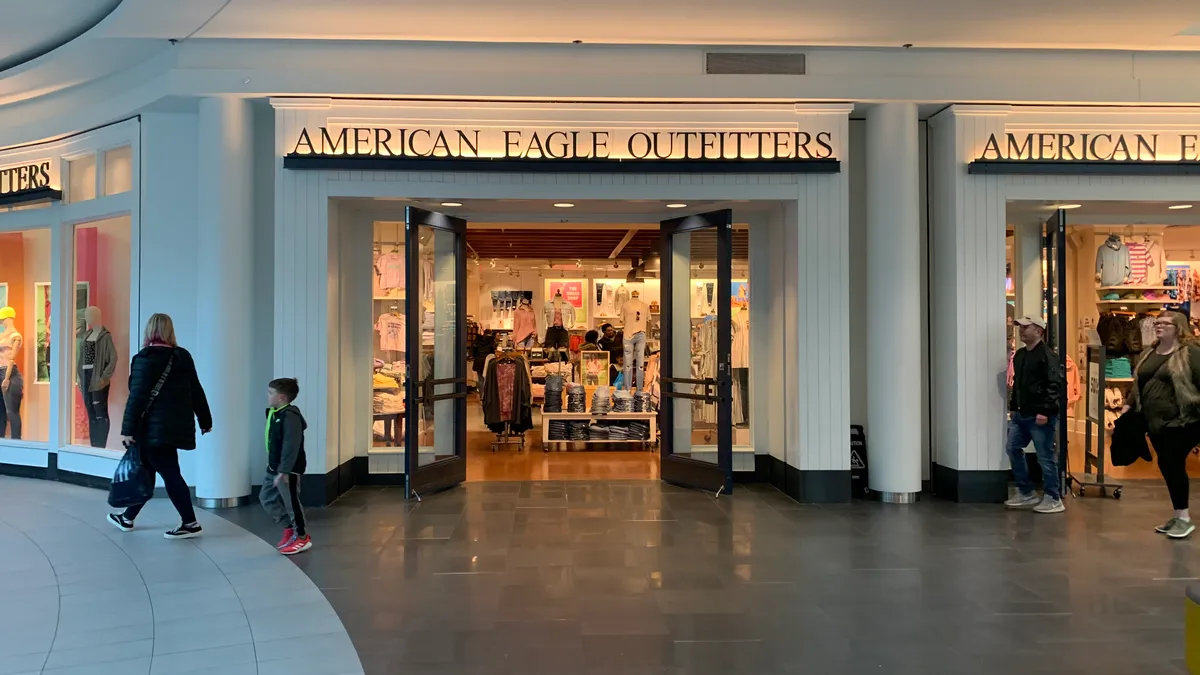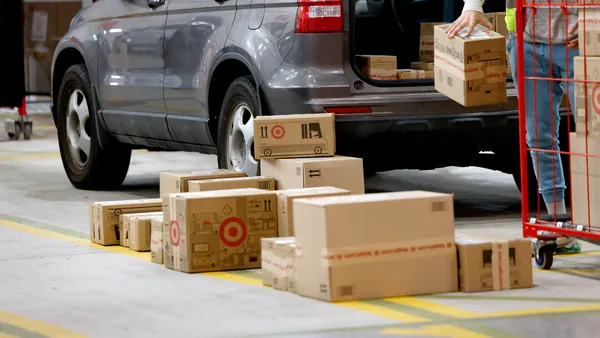Dive Brief:
- American Eagle Outfitters accelerated its plans to open two third-party managed fulfillment hubs outside Boston and Atlanta in the first quarter, COO Michael Rempell told analysts on a Wednesday earnings call.
- The company fast-tracked the plan as e-commerce orders increased after it closed all stores in mid-March. Though total revenue decreased 38% year over year in the quarter (ending May 2), online orders increased 33%, with much of the boost coming in April. "We had planned to do this over a few years, but the pandemic and the crisis we're going through actually forced us to move much faster," said Rempell.
- The fulfillment hubs, combined with shipping from 250 stores, helped to reduce a fulfillment backlog brought on by increased volume and distribution center shutdowns to facilitate cleaning. The backlog peaked in mid-April and is now declining, Rempell said. As of Wednesday, the company had reopened 556 stores with buy online, pick up in-store and curbside pick up, but executives said e-commerce volume has not waned.
Dive Insight:
The peri-urban fulfillment hub is a fixture of Amazon's supply chain and catching on slowly with other retailers. Home Depot has a version. Foot Locker has dipped a toe in as well. But few pure-play apparel sellers have adopted the strategy.
The benefit is faster fulfillment to large swaths of customers by staging inventory near population centers. The downside is each hub is another warehouse to manage and the ROI on delivery speed can be difficult to measure. Rempell said the scheme would improve inventory management and decrease delivery times while reducing costs.
"The idea there is to take inventory out of stores, keep it in these fulfillment centers and be able to be more productive with the inventory by servicing stores, same day or next day, and having a larger pool of inventory close to customers to be able to fulfill digital needs also the same day or next day, and do that while managing costs," Rempell said.
American Eagle reduced its capital expenditure plans by roughly half for 2020, prioritizing "key investments in customer-centric capabilities and supply chain initiatives, which we expect to create significant near and long-term value," CFO Mike Mathias said.
Optimizing supply chain speed will help beyond customer delivery too, Mathias said. The company intends to more tightly manage inventory and reduce SKUs going forward to respond better to consumer preferences, rather than ordering large lots of products and attempting to predict it.
"Across brands, we also intend to better align inventory investments with our sales plan and take greater advantage of our supply chain speed to chase into demand," Mathias said.














